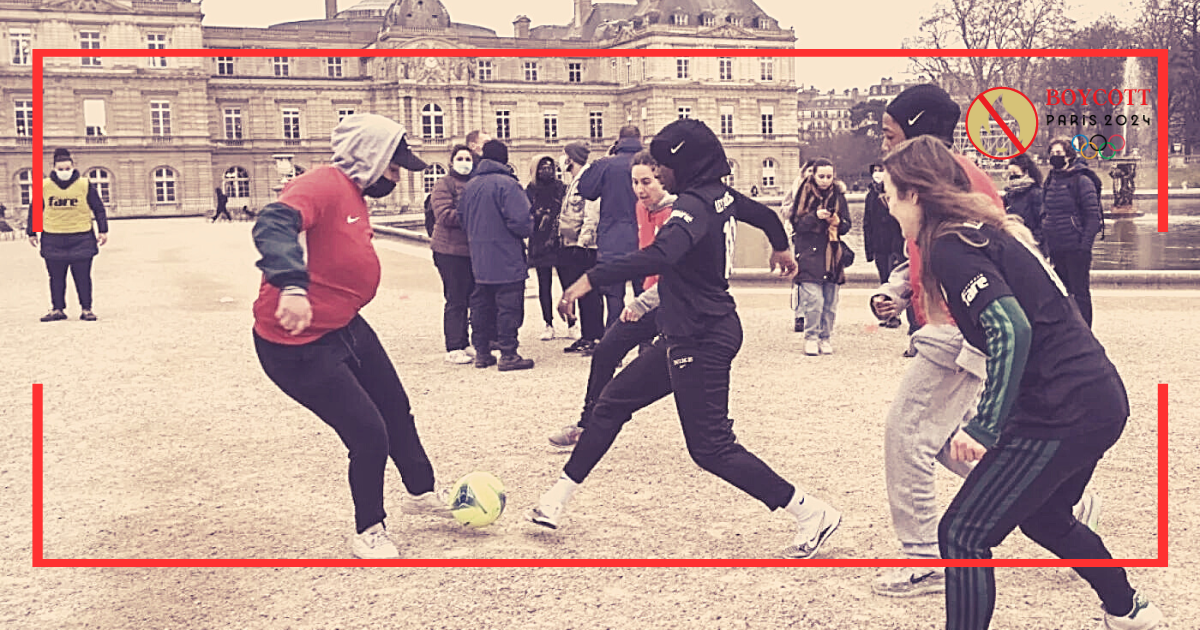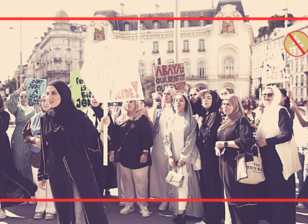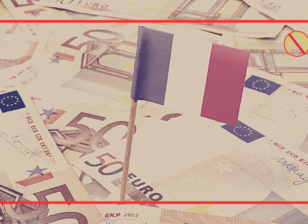France’s Sports Discriminatory Ban: A Closer Look
France, a nation renowned for its rich cultural heritage and passionate sporting traditions. It has recently found itself embroiled in a contentious debate surrounding its decision to impose a ban on religious or cultural attire in various sporting events. The controversy, triggered primarily by the French government’s imposition of a hijab ban in the upcoming Paris Summer Olympics 2024. It has drawn widespread condemnation both domestically and internationally. The complexity of this discriminatory restriction is examined in this article, along with its effects on human rights, cultural diversity, and France’s international standing.
France’s Decision to Bar Athletes
The announcement by the French Minister of Sports regarding the prohibition of Islamic veils. Other religious attire in the Paris Summer Olympics 2024 has stirred a significant backlash within the international community. The decision has not only raised questions about the principles of equality and inclusivity. It has also triggered a broader debate on the limits of secularism and the place of cultural and religious diversity in the world of sports.
Impact on Muslim Population in France
With a substantial Muslim population in France, the ban on Islamic veils in sports has sparked outrage and discontent among the affected communities. The Arab and international condemnation have highlighted the discriminatory nature of the decision. They amplify concerns about human rights violations and the marginalisation of specific religious groups within the country.
The Clash with International Olympic Committee (IOC) Regulations
France’s insistence on enforcing religious or cultural attire restrictions in international sporting competitions has placed it at odds with the guidelines set by the International Olympic Committee (IOC). The IOC, known for its emphasis on promoting inclusivity and fair participation, has expressed concerns over France’s deviation from the principles of the Olympic spirit, which champions unity and respect for all athletes, regardless of their cultural or religious background.
Secularism in France and Public Service Neutrality
The contentious issue of secularism in France, deeply embedded in its historical and political landscape, has long been a subject of debate. While the country has emphasised the importance of maintaining a secular state and public service neutrality. The recent decision to impose a ban on religious attire in sports has led to accusations of fostering an environment of discrimination and exclusion, particularly targeting the Muslim community.
Paris Summer Olympics 2024: A Controversial Beginning
As the Olympic flame is set to be lit in Paris for the Summer Olympics in 2024, the city’s grand celebration of sporting excellence is overshadowed by the cloud of controversy surrounding the discriminatory ban. This move has not only tarnished the excitement and anticipation for the prestigious event but has also prompted deep reflection on the values and ethos that the Olympics symbolise.
International Outcry and Diplomatic Tensions
The Arab and Muslim nations, along with organisations such as the Islamic Solidarity Sports Federation. The Organization of Islamic Cooperation (OIC), have vehemently criticised France’s discriminatory ban as a violation of fundamental human rights and an affront to the principles of religious freedom. Accusations labelling France as a racist country have strained diplomatic ties and have led to a broader discussion about the boundaries of cultural acceptance and respect on the global stage.
Upholding Human Rights and Ensuring Inclusivity
In the face of growing international scrutiny, France is urged to reassess its stance on the ban. It recognizes the importance of upholding human rights and promoting a culture of inclusivity within the realm of sports. The United Nations rights office has emphasised the need for countries to respect the freedom of religious expression and protect individuals’ rights to practise their beliefs without prejudice or discrimination.
Conclusion
As France grapples with the aftermath of its controversial decision, it is imperative for the nation to engage in meaningful dialogue and reflection on the fundamental values of tolerance and respect. Striking a delicate balance between secular ideals and the promotion of cultural diversity is crucial in fostering an environment. There all athletes, regardless of their religious or cultural backgrounds, can participate in international sporting events with dignity and equality. Only through a concerted effort to embrace the principles of inclusivity can France reclaim its standing as a beacon of equality and harmony on the global sporting stage.




